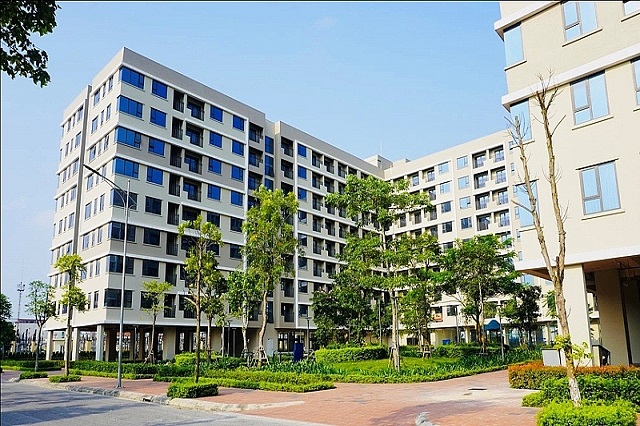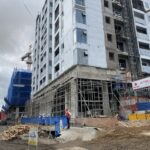
Mr. Nguyen Duc Lenh, Deputy Director of the State Bank of Vietnam’s Ho Chi Minh City Branch, shared his assessment of the changes, amendments, and supplements to the Housing Law regarding the conditions for purchasing social housing. These adjustments aim to address and overcome previous limitations in administrative procedures and outdated regulations. One significant change is the removal of residency requirements, which previously mandated that eligible social housing buyers must have permanent residence or temporary residence registration of at least one year. The law now includes more specific and quantitative conditions related to housing ownership and living space per person.
Additionally, the income criteria (applicable to low-income individuals, workers, and civil servants) have been modified to provide concrete thresholds. For instance, the income threshold for an unmarried individual to be eligible for social housing is now set at VND 15 million per month, while for a married couple, the combined income should not exceed VND 30 million per month. This adjustment is a welcome change as it offers more flexibility and opportunities for many individuals belonging to this target group. From a business management perspective, meeting the income criteria, along with other requirements, increases the chances of obtaining bank credit to purchase a suitable social housing unit.
Mr. Lenh highlighted three main aspects reflecting the significance of this adjustment:
First, from a management and credit accessibility standpoint, income is a crucial factor considered by commercial banks when assessing loan applications. As loan repayments primarily depend on the borrower’s income, adjusting the income criteria addresses previous limitations in accessing credit for social housing buyers. The increased income threshold not only expands the pool of eligible borrowers but also enhances their ability to manage living expenses, maintain their standard of living, and repay their loans. This benefits not only the disbursement of the VND 120,000 billion credit package but also promotes the development of social housing, ensuring social welfare, sustainable economic growth, and financial stability.
Second, the revised income criteria, coupled with the current preferential interest rate of 6.5% per annum, a loan term of 20 to 25 years, and a loan amount ranging from VND 800 million to VND 1 billion, make it feasible for borrowers to manage their living expenses and loan repayments even in large cities like Ho Chi Minh City. This is a vital consideration for commercial banks during the loan approval process and lays the foundation for expanding access to bank credit for policy-eligible home buyers.
Third, the adjustments and supplements to the conditions for purchasing social housing under the 2023 Housing Law are necessary and practical changes that address previous shortcomings. Along with ensuring a sufficient supply of quality and affordable social housing units, maintaining access to preferential credit, and implementing solutions for developing social housing, these adjustments make it feasible to provide housing for low-income individuals in the future. Commercial banks should proactively establish procedures, conditions, and mechanisms for verifying income, repayment sources, and information systems to support the safe and effective growth of social housing credit, thereby fulfilling the government, SBV, and HCMC People’s Committee’s policies and directives.
Easier mortgage interest rates
Starting from the beginning of the year, banks have been implementing various low-interest credit packages, offering loans to pay off debts from other banks… with the aim of stimulating the demand for home loans.



















